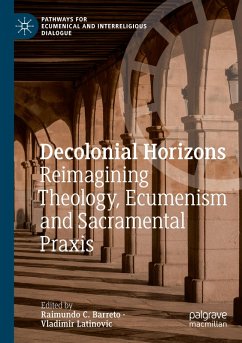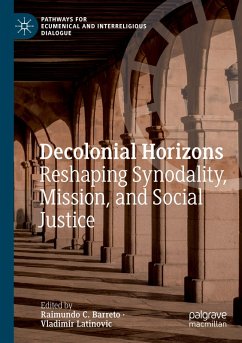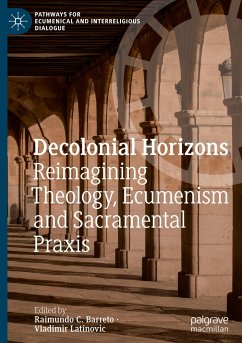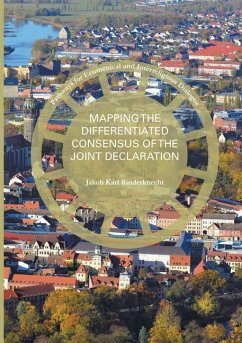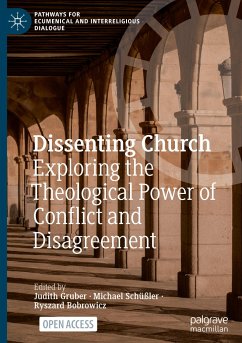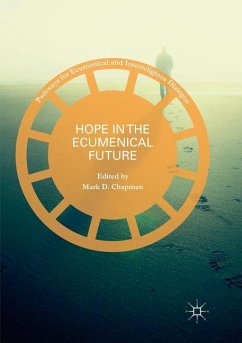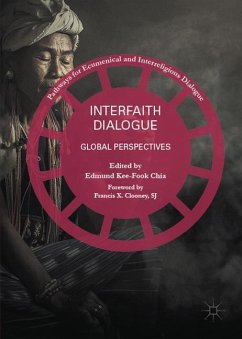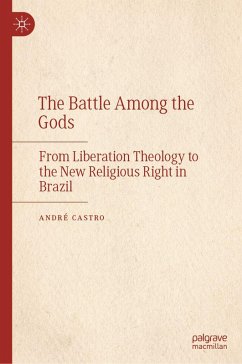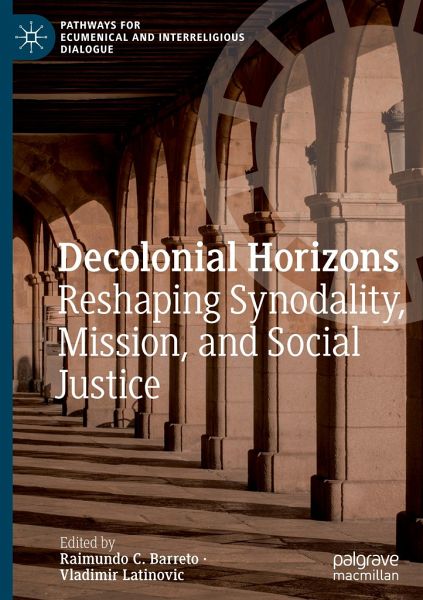
Decolonial Horizons
Reshaping Synodality, Mission, and Social Justice
Herausgegeben: Barreto, Raimundo C.; Latinovic, Vladimir

PAYBACK Punkte
53 °P sammeln!
This is the second of two volumes of essays from the Ecclesiological Investigations International Research Network's 14th International Conference focused on decolonizing churches and theology, addressing oppressions based on gender, racial, and ethnic identities; economic inequality; social vulnerabilities; climate change and global challenges such as pandemics, neoliberalism, and the role of information technology in modern society, all connected with the topic of decolonization.The essays in this volume focus on decoloniality in empire, family, and mission, written from historical, dogmatic...
This is the second of two volumes of essays from the Ecclesiological Investigations International Research Network's 14th International Conference focused on decolonizing churches and theology, addressing oppressions based on gender, racial, and ethnic identities; economic inequality; social vulnerabilities; climate change and global challenges such as pandemics, neoliberalism, and the role of information technology in modern society, all connected with the topic of decolonization.
The essays in this volume focus on decoloniality in empire, family, and mission, written from historical, dogmatic, social scientific, and liturgical perspectives.
The essays in this volume focus on decoloniality in empire, family, and mission, written from historical, dogmatic, social scientific, and liturgical perspectives.





